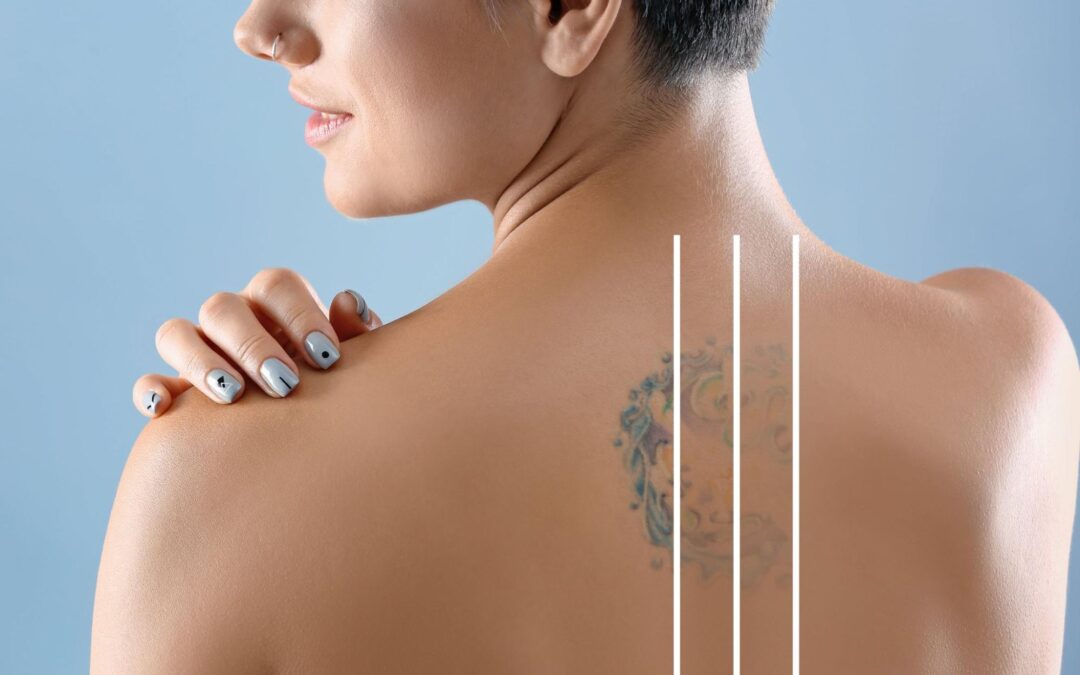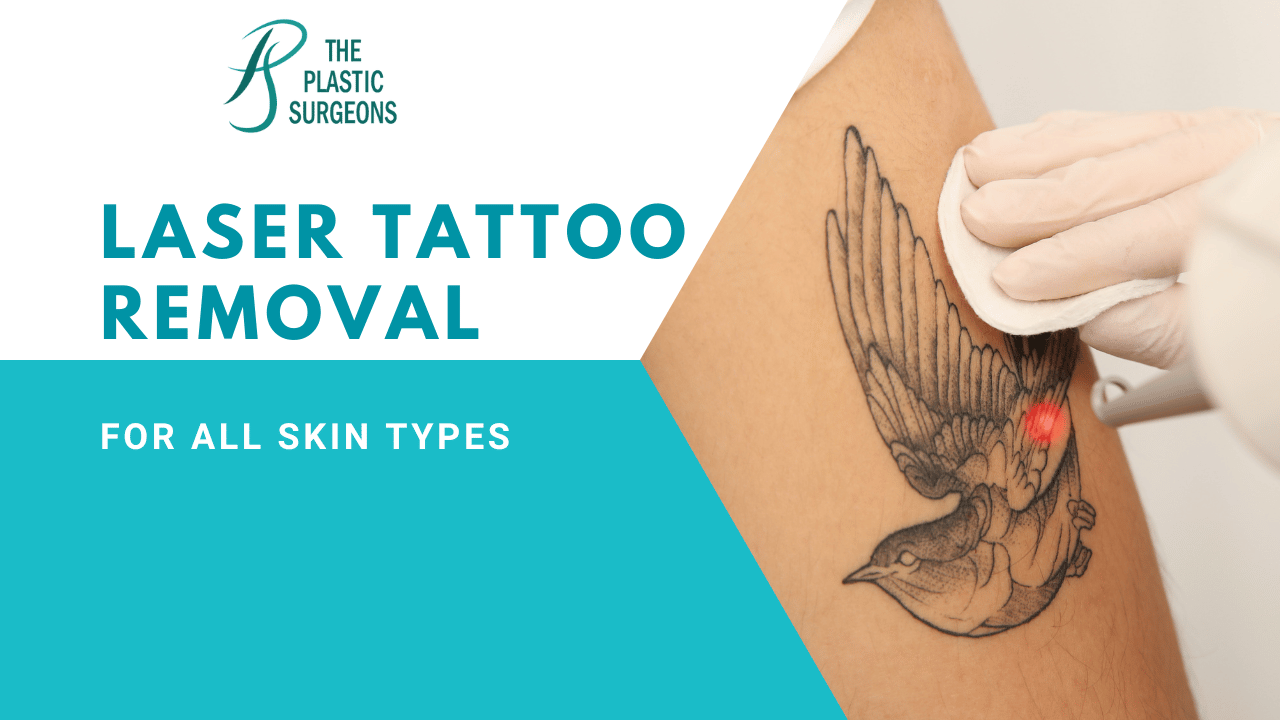Tattoos are a form of self-expression, but sometimes people want to remove them. Laser tattoo removal has become a popular option due to its precision and effectiveness. If you are considering this treatment, you may wonder how safe it is for different skin types.
This blog explores the safety of laser tattoo removal, its suitability for various skin tones, the procedure, potential side effects, and what to expect before and after treatment. You will also find answers to common questions to help make an informed decision.
Understanding Laser Tattoo Removal

Laser tattoo removal uses focused light energy to break down tattoo ink particles in the skin. The body gradually eliminates these particles over several sessions.
The procedure targets pigments without harming surrounding skin, making it a precise method for tattoo removal. The effectiveness and safety depend on several factors, including the type of laser, the color of the tattoo, and your skin type.
Skin Types and Laser Tattoo Removal
Human skin comes in a wide range of tones and textures. Laser treatment affects lighter and darker skin differently:
- Fitzpatrick Skin Types I-III (light to medium skin): These skin types generally respond well to laser removal, with a lower risk of pigmentation changes.
- Fitzpatrick Skin Types IV-VI (medium to dark skin): Darker skin requires special care. There is a higher risk of hyperpigmentation or hypopigmentation if the laser energy is too strong.
Consulting a board-certified plastic surgeon or dermatologist ensures the laser settings are adjusted specifically for your skin type to minimize risks.
Types of Lasers Used
Different lasers are suited for different ink colors and skin types:
- Q-switched Nd:YAG Laser: Effective for dark ink colors and safe for darker skin tones.
- PicoSure Laser: Works on multiple ink colors, including green and blue.
- Alexandrite Laser: Commonly used for lighter skin tones but less suitable for darker skin.
Selecting the right laser is critical for safety and effective results.
Number of Sessions Required
Laser tattoo removal is not a one-time procedure. The number of sessions depends on several factors:
- Ink color and type
- Tattoo age and depth
- Skin type and response to treatment
On average, most tattoos require 5–10 sessions spaced 6–8 weeks apart. Darker skin may require fewer sessions with lower energy levels to prevent side effects.
Potential Side Effects
Laser tattoo removal is generally safe but may cause temporary effects:
- Redness and swelling around the treated area
- Minor blistering or scabbing
- Temporary changes in skin pigmentation
- Rarely, mild scarring
Following post-treatment care instructions, such as avoiding sun exposure and applying soothing creams, helps reduce risks and promotes healing.
Pre-Treatment and Post-Treatment Care
Proper care before and after treatment is essential for safety:

- Before treatment: Avoid tanning, and inform your doctor about any skin conditions or medications.
- After treatment: Keep the area clean, avoid picking scabs, and use gentle moisturizers. Avoid sun exposure to reduce the risk of pigmentation changes.
A customized care plan from a qualified plastic surgeon ensures better results and reduces complications.
Who Should Avoid Laser Tattoo Removal?
Laser tattoo removal may not be suitable for everyone. Avoid treatment if:
- You have active skin infections or open wounds in the treatment area
- You are prone to keloid scarring
- You have certain medical conditions like uncontrolled diabetes
- You are pregnant or breastfeeding
Your doctor can assess your suitability and recommend alternative methods if needed.
Expert Guidance from Dr. Vinay Jacob and Dr. Ashish Magdum
Dr. Vinay Jacob and Dr. Ashish Magdum, The Plastic Surgeons, offer professional care in laser tattoo removal. With years of international experience, they provide safe, effective treatments for various skin types.
Their approach combines expertise with patient-focused care, ensuring each session is tailored to your skin type and tattoo characteristics. You receive guidance before, during, and after treatment for optimal results.
The team also handles surgical, non-surgical, and reconstructive procedures, including hair transplants, liposuction, tummy tucks, rhinoplasty, facelifts, breast augmentation, gynecomastia treatments, and more. You are in safe hands throughout your transformation journey.
FAQs on Laser Tattoo Removal
1. Is laser tattoo removal painful?
Most patients feel a stinging or snapping sensation during treatment. Topical numbing creams are available to reduce discomfort.
2. Can all tattoo colors be removed?
Dark colors like black and blue respond best. Red, green, and yellow may require specialized lasers and more sessions.
3. How long does it take to see results?
You may notice fading after the first few sessions, but complete removal usually takes several months depending on tattoo size and ink depth.
4. Are there permanent side effects?
Serious side effects are rare when treatment is performed by trained professionals. Temporary redness, swelling, or pigmentation changes are more common but usually resolve over time.
5. Can laser tattoo removal cause scarring?
The risk of scarring is low when proper settings and post-care instructions are followed. Patients prone to keloid formation should consult their doctor before treatment.
Laser tattoo removal is a safe and effective option for most skin types when performed by experienced professionals. With proper care, the procedure can successfully fade or remove unwanted tattoos without major complications. Consulting qualified surgeons like Dr. Vinay Jacob and Dr. Ashish Magdum ensures your treatment is tailored to your skin type, offering both safety and effective results. Taking the first step toward tattoo removal can be reassuring when guided by experts.


